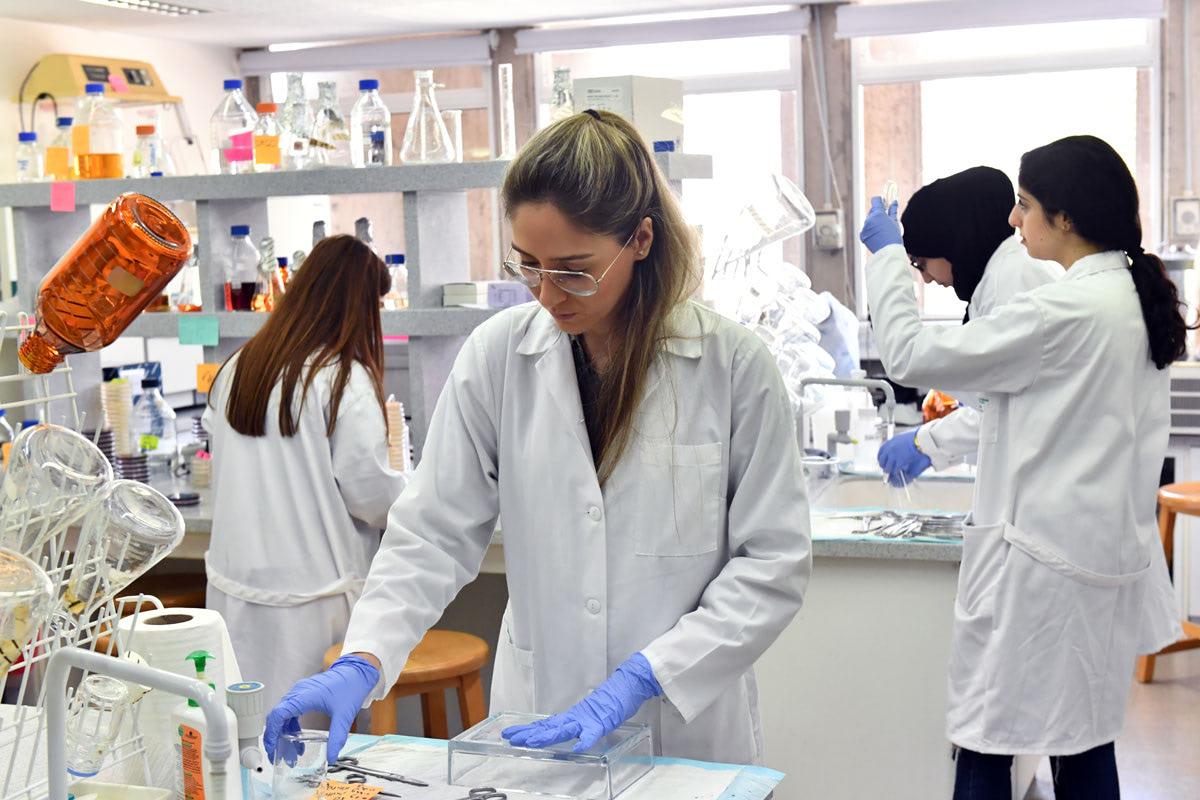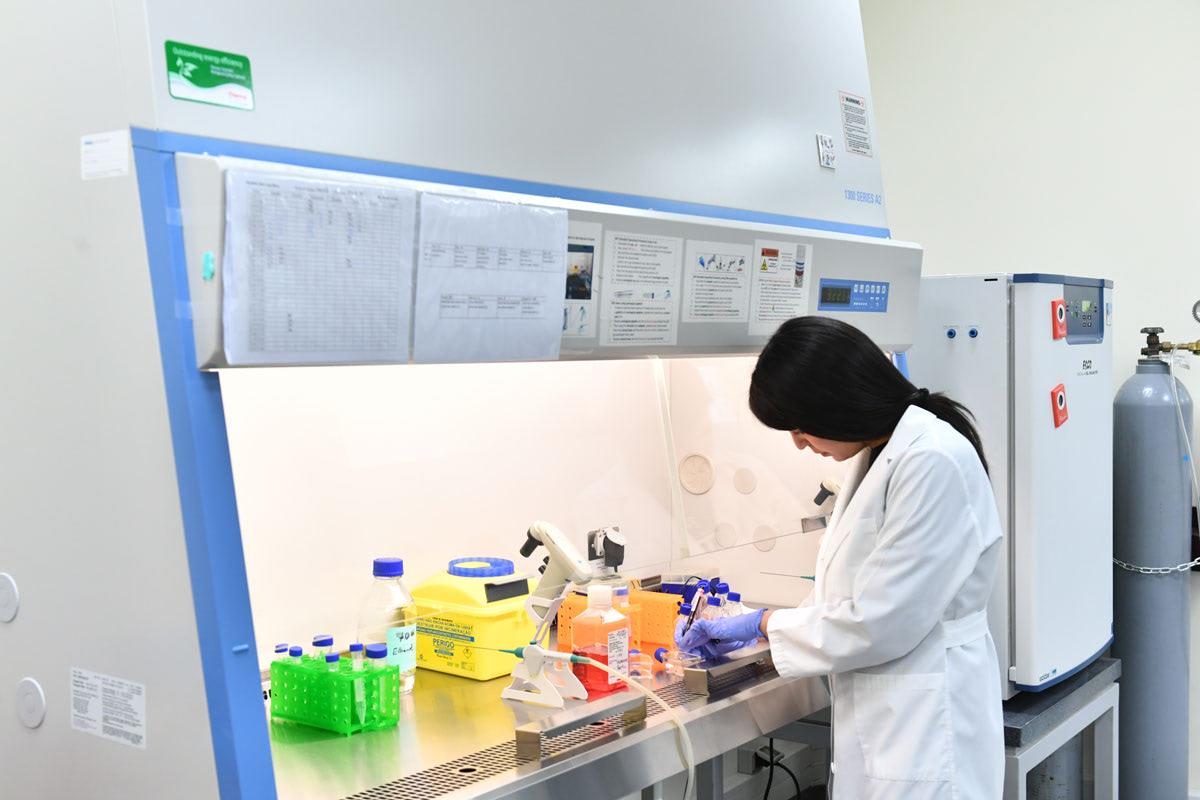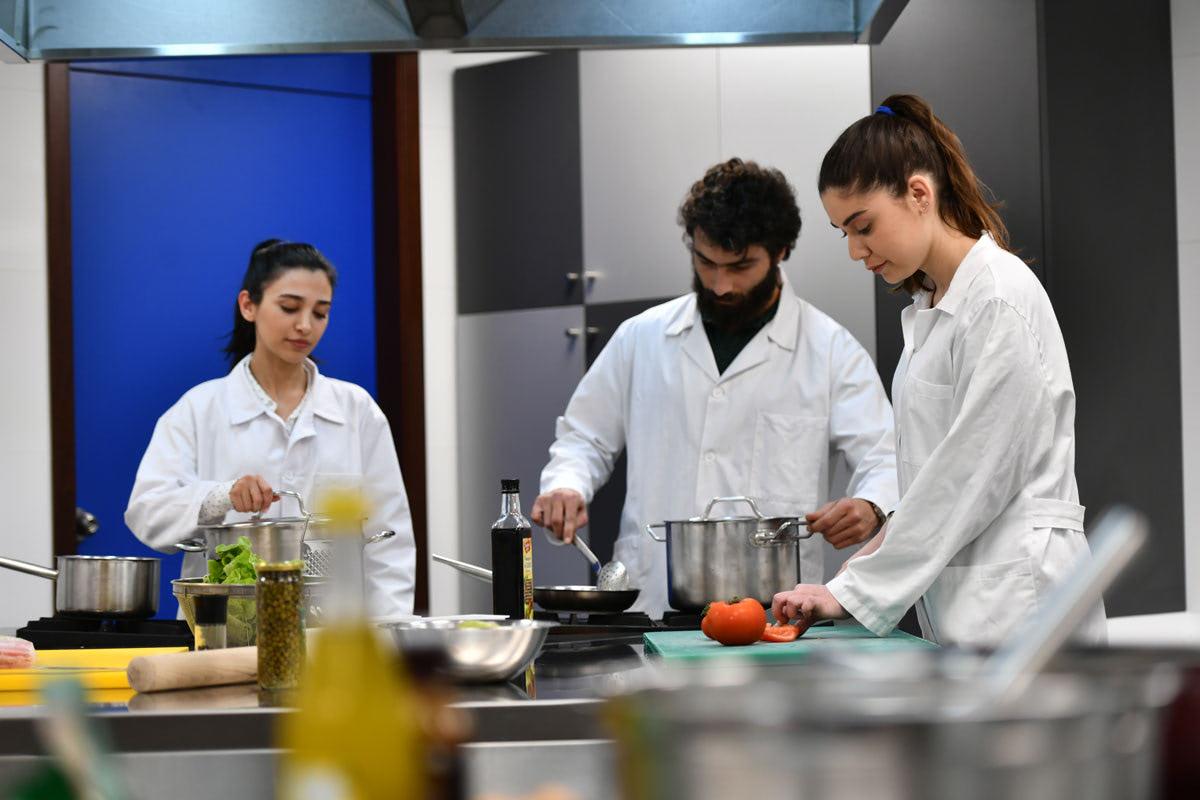Nutrition/Food Analysis Labs
In our nutrition and food analysis laboratories, students can improve their skills in nutrition assessment and diagnostic techniques. These labs are home to state-of-the-art equipment to support practical teaching in nutrition, dietetics, food, human physiology and community nutrition services.
Beirut Campus
The Lebanese American University has specialized nutrition labs on the Beirut Campus, which are home to state-of-the-art equipment to support practical teaching in food, nutrition, dietetics, human physiology and community services. Our laboratories aim to provide a hands-on experience and give students the opportunity to learn and improve their competency-based skills in nutrition assessment, food analysis and diagnostic techniques.
Nutrition Lab (Sage 308)

This lab features an Indirect Calorimeter, different Body Composition Analyzers, a Blood Analyzer, a bomb calorimeter, anthropometric measurements tools (scale, hand dynamometer, tapes, height scale, etc…), nutrient analysis computer software, various models of food that can be used for education in food portion size/control, and health promotion props (such as diabetic feed to visualize the effects of diabetes, and fat and muscle models).
Nutrition Lab (Sage 308)
This lab serves as a teaching lab for nutrition status assessment, meal planning, and medical nutrition therapy courses. This lab also serves as a research lab where qualitative and quantitative data can be collected from participants in nutrition studies including interviews, focus group discussions, as well as anthropometric, clinical, and dietary data collection. This lab features different body composition analyzers, anthropometric measurement tools (scale, hand dynamometer, tapes, height scale, etc.), nutrient analysis computer software, food models, and nutrition educational material.
Nutrition Lab (Sage 309)
This lab serves as a teaching lab for nutrition status assessment, meal planning and medical nutrition therapy courses. This lab also serves as a research lab where qualitative and quantitative data can be collected from participants in nutrition studies including interviews and focus group discussions, as well as anthropometric, clinical and dietary data collection. This lab features different body composition analyzers, anthropometric measurement tools (scale, hand dynamometer, tapes, height scale, etc.,) nutrient analysis computer software, food models and nutrition educational material.
Food Analysis Lab (Sage 404)
The food analysis laboratory aims to provide a hands-on, food-related experience and improve the experiential learning ability of nutrition students. The lab includes state-of-the-art food analysis equipment such as a protein analyzer, fibertherm, fat analyzer, moisture analyzer, water activity meter, hydrometers, and refractometers, among others.
Byblos Campus
The Lebanese American University’s Byblos campus is home to state-of-the-art equipment to support practical teaching in food, nutrition, dietetics, human physiology and community nutrition services. Our laboratories aim to provide hands-on experience and give students the opportunity to learn and improve competency-based skills in nutrition assessment, food analysis and diagnostic techniques.
Nutrition Lab (Sci 106)

Our nutrition labs feature an Indirect Calorimeter, various Body Composition Analyzers, anthropometric measurement tools (scales, hand dynamometer, tapes, height scale, etc…), nutrient analysis computer software, various models of food that can be used for education in food portion size/control, and health promotion props and models.
Research Lab / Food Analysis Lab (Sci 304B)

The food analysis laboratory aims to provide a hands-on, food-related experience and improve the experiential learning ability of nutrition students. The lab includes state-of-the-art food analysis equipment such as a protein analyzer, fibertherm, fat analyzer, moisture analyzer, water activity meter, hydrometers, and refractometers, among others.
DXA Room (BA 302C)
The dual-energy X-ray absorptiometry machine (DXA) is used by nutrition students and faculty for teaching and research. The main purpose of the DXA scan is to assess and measure bone density by using two low energy X-Ray beams, but it could also be used in determining body composition, such as lean body mass and fat mass.